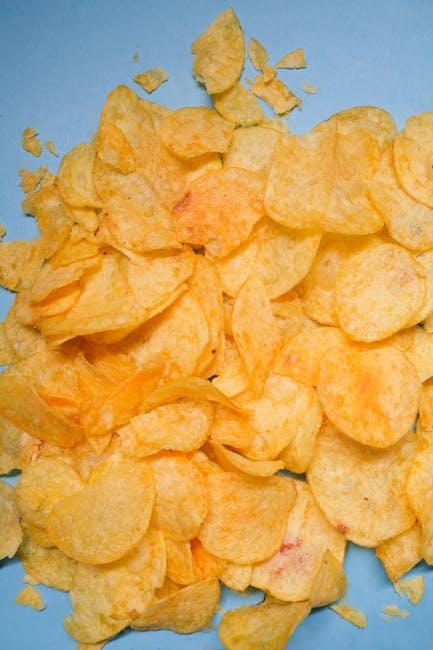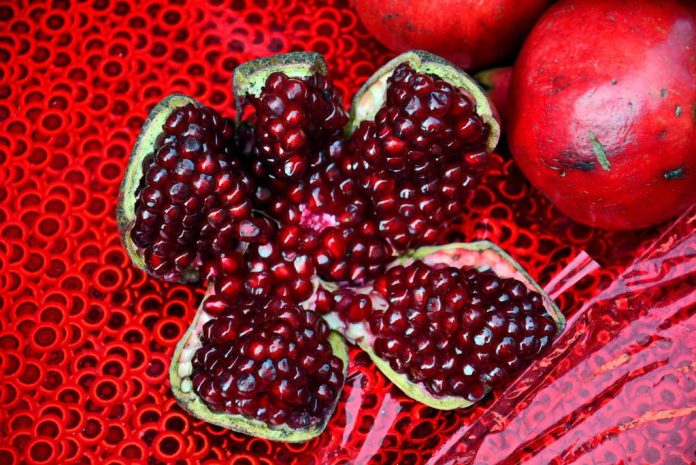In the world of sports, where every millisecond counts and every ounce of strength is measured, athletes are constantly seeking the edge that will propel them to greatness. Amidst the rigorous training regimes and strategic planning, nutrition stands as a cornerstone of athletic success. Yet, in an era where convenience often triumphs over caution, the question arises: can athletes truly avoid all processed foods? As we delve into the dietary landscapes of modern athletes, we explore the feasibility of maintaining a pristine, unprocessed diet amidst the demands of high-performance sports. This article navigates the challenges and realities faced by athletes striving to fuel their bodies with only the purest of nutrients, examining whether the pursuit of such dietary perfection is a realistic goal or an unattainable ideal.
Navigating Nutrition Labels and Hidden Ingredients
In the quest to minimize processed foods, athletes often face the daunting task of decoding nutrition labels. These labels, while seemingly straightforward, can hide a multitude of additives and ingredients that may not align with an athlete’s dietary goals. Understanding the ingredient list is crucial. Ingredients are listed by weight, starting with the largest amount. However, beware of synonyms; sugar, for example, can appear under names like high-fructose corn syrup, sucrose, or agave nectar. Similarly, additives like preservatives and artificial flavors can be masked under less familiar names.
To effectively navigate these labels, athletes should focus on whole foods and look for products with minimal ingredients. Key tips include:
- Choosing products with five ingredients or fewer.
- Avoiding items with ingredients you can’t pronounce.
- Being cautious of “natural” labels, which can still contain processed components.
Ultimately, while avoiding processed foods entirely might be challenging, being informed and vigilant about label reading can significantly reduce unwanted additives in an athlete’s diet.

The Role of Whole Foods in Athletic Performance
In the realm of athletic performance, whole foods play a crucial part in providing the necessary nutrients that fuel and repair the body. Unlike their processed counterparts, whole foods are rich in vitamins, minerals, and antioxidants, which are essential for optimal health and peak performance. Athletes often turn to these nutrient-dense options to enhance their endurance, speed up recovery times, and maintain overall wellness. Whole foods like fruits, vegetables, nuts, and lean proteins offer a natural and effective way to meet the high energy demands of rigorous training sessions and competitions.
Here are some benefits of incorporating whole foods into an athlete’s diet:
- Improved Energy Levels: Whole grains and complex carbohydrates provide a steady release of energy.
- Enhanced Recovery: Antioxidant-rich foods help reduce inflammation and muscle soreness.
- Stronger Immunity: A diet rich in whole foods supports the immune system, reducing the risk of illness.
- Balanced Nutrition: Whole foods offer a variety of nutrients that processed foods often lack.

Crafting a Balanced Meal Plan for Peak Fitness
For athletes striving for peak fitness, crafting a balanced meal plan that fuels performance without relying on processed foods is a challenging yet rewarding endeavor. While it’s nearly impossible to eliminate all processed foods, focusing on whole, nutrient-dense options can dramatically enhance energy levels and recovery. Prioritize fresh fruits and vegetables, lean proteins, and whole grains, as these provide essential vitamins and minerals crucial for athletic performance. Consider incorporating foods like:
- Quinoa and brown rice for complex carbohydrates.
- Leafy greens and colorful veggies to boost antioxidant intake.
- Lean meats, fish, and plant-based proteins for muscle repair.
- Nuts and seeds for healthy fats and additional protein.
Balancing macronutrients while minimizing processed food intake involves creativity and planning. Homemade snacks, such as energy bars or smoothies, can replace store-bought options filled with preservatives. Batch cooking and meal prepping can also streamline the process, ensuring that whole foods are always within reach. Ultimately, the key lies in understanding the body’s needs and tailoring the meal plan to meet these requirements, allowing athletes to maintain peak fitness while minimizing processed food consumption.

Expert Tips for Minimizing Processed Food Intake
Navigating the world of processed foods can be challenging, especially for athletes who are mindful of their dietary choices. To help minimize the intake of processed foods, consider implementing these expert strategies. Start by prioritizing whole foods such as fresh fruits, vegetables, lean proteins, and whole grains. These foods not only provide essential nutrients but also help in maintaining optimal energy levels. When grocery shopping, focus on the outer aisles of the store where these items are typically found, and make it a habit to read ingredient labels carefully.
- Plan Your Meals: Preparing meals at home allows for greater control over ingredients and portion sizes.
- Snack Wisely: Opt for raw nuts, seeds, or homemade snacks to avoid processed options.
- Stay Hydrated: Drinking plenty of water can reduce cravings for processed beverages and snacks.
For those with a busy schedule, batch cooking can be a lifesaver. Dedicate time each week to cook and store meals in advance, ensuring quick access to nutritious options without the need to resort to processed convenience foods. By embracing these practices, athletes can significantly reduce their consumption of processed foods while still meeting their nutritional needs.
Final Thoughts
In the grand tapestry of athletic pursuit, the question of whether athletes can avoid all processed foods remains a complex thread, woven with individual choices, nutritional science, and the realities of modern living. While the allure of unprocessed, natural foods is undeniable, promising purity and optimal performance, the demands of training, convenience, and personal preference often paint a more nuanced picture. Ultimately, the path each athlete chooses is deeply personal, guided by their unique goals, lifestyle, and values. As we close this exploration, let us remember that the journey to peak performance is not solely defined by dietary choices but by a holistic balance of discipline, knowledge, and the ever-evolving dance between body and mind.


































